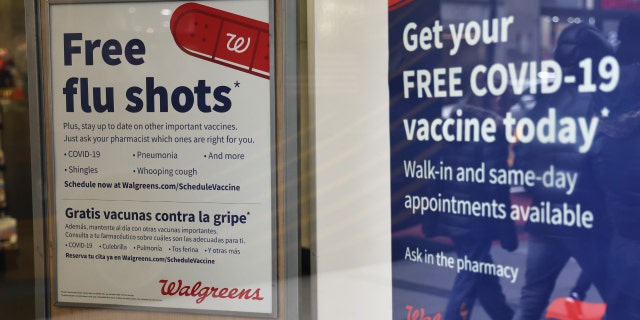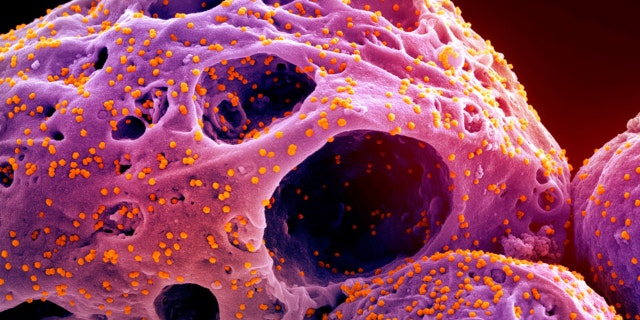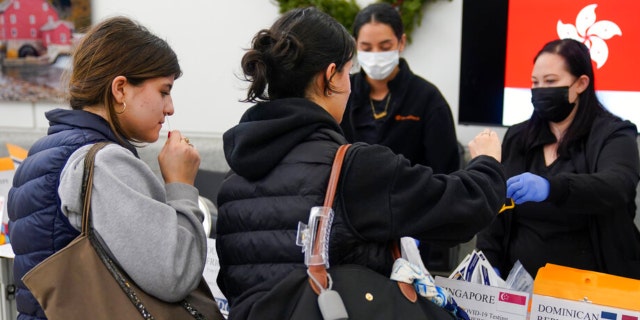
New York City health officials are warning residents that the infectious omicron subvariant XBB.1.5 may be more likely to infect people who have already been vaccinated or infected with COVID-19.
“Omicron subvariant XBB.1.5 now accounts for 73% of all sequenced COVID-19 cases in NYC,” the NYC Department of Health and Mental Hygiene tweeted on Friday. ” XBB.1.5 is the most transmissible form of COVID-19 that we know of to date and may be more likely to infect people who have been vaccinated or already had COVID-19.”
The department added that getting vaccinated against the virus, including receiving an updated booster shot, remains the best way to protect against hospitalization and death, including from new variants.
According to data from the Centers for Disease Control and Prevention, XBB.1.5 accounts for 43% of cases in the U.S.
COVID XBB.1.5 VARIANT NOW ACCOUNTS FOR 43% OF ALL US CASES, CDC SAYS

Flu and coronavirus (COVID-19) vaccine signage is seen at a Duane Reade by on Broadway on Jan. 5, 2023, in New York City.
(Michael M. Santiago/Getty Images)
In the first week of January, the subvariant accounted for about 30% of cases.
XBB.1.5, an offshoot of XBB, was first detected in October.
The World Health Organization warned earlier this week that it may lead to an increased number of cases based on genetic characteristics and early growth rate estimates.

This colorized electron microscope image made available by the National Institute of Allergy and Infectious Diseases in November 2022, shows cells, indicated in purple, infected with the omicron strain of the SARS-CoV-2 virus, orange, isolated from a patient sample, captured at the NIAID Integrated Research Facility (IRF) in Fort Detrick, Maryland.
(NIAID/NIH via AP)
COVID OMICRON SUBVARIANT XBB: WHY THE NUMBER OF CASES IS LIKELY FAR GREATER THAN REPORTED
Scientists have cautioned that the virus will surely keep evolving.
“Our concern is how transmissible it is,” Maria Van Kerkhove, the WHO’s technical lead on COVID-19, said.

Passengers disembarking from international flights take anonymous COVID tests for study purposes at Newark Liberty International Airport in Newark, N.J., Wednesday, Jan. 4, 2023.
(AP Photo/Seth Wenig)
“The more this virus circulates, the more chances it will have to change,” she noted.
CLICK HERE TO GET THE FOX NEWS APP
Van Kerkhove said there is no data yet to prove that XBB.1.5 causes more severe disease, but that the agency is working on a new risk assessment of the variant that it expects to release soon.
Reuters and The Associated Press contributed to this report.

 Latest Breaking News Online News Portal
Latest Breaking News Online News Portal




